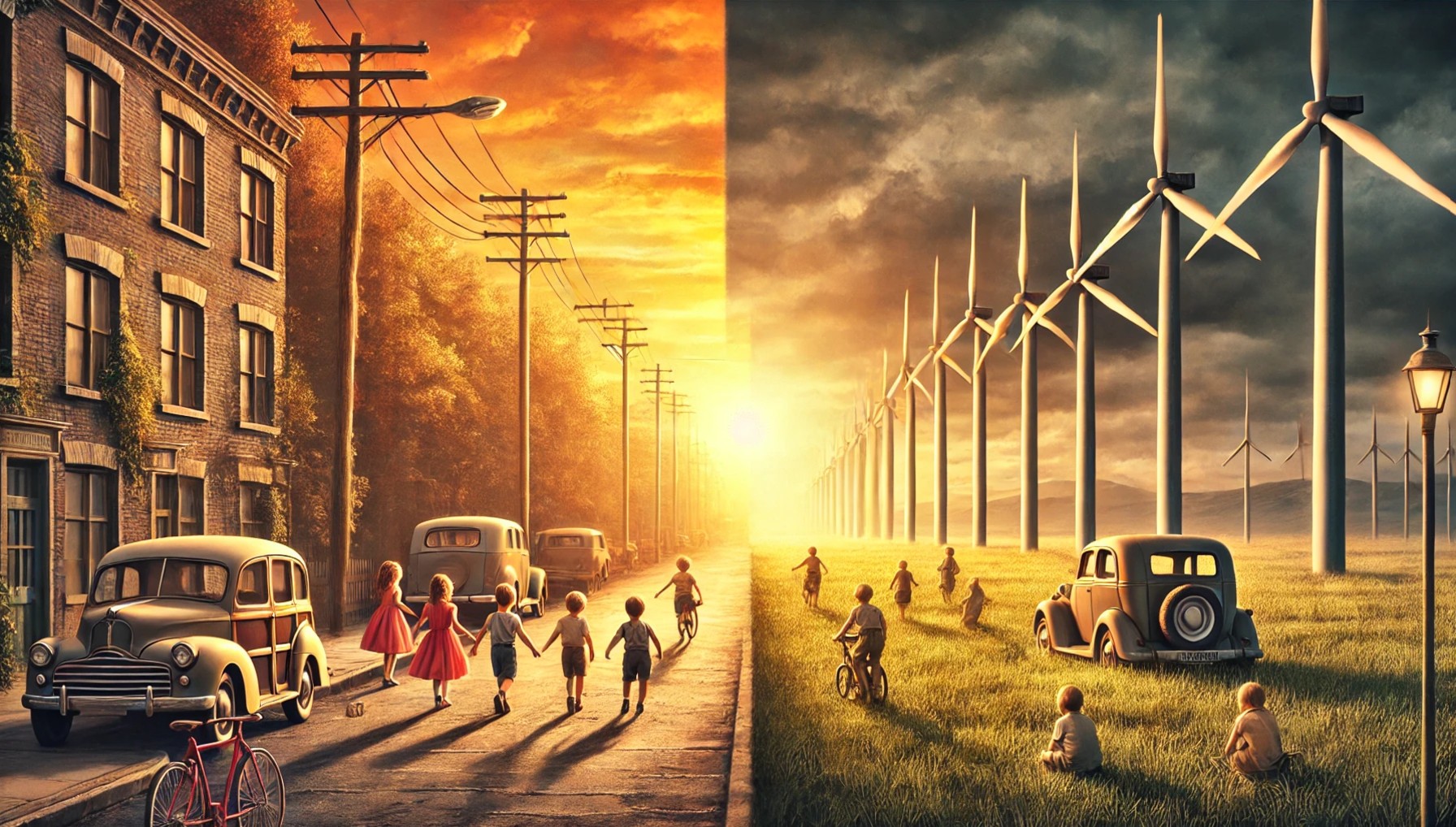Reminiscence
Recently posted on a local social media page, this statement seemingly reflects on what it was like to grow up in the post-war baby-boom era:
We are a generation that will never return. A generation that walked to school and then walked back home. A generation that did their homework alone to quickly get out and play in the streets. A generation that spent all their free time outdoors with friends. A generation that played hide and seek in the dark. A generation that made mud pies. A generation that collected sports cards. A generation that found, collected, washed, and returned empty Coke bottles to the local grocery store for 5 cents each, then bought a Mountain Dew and a candy bar with the money. A generation that crafted paper toys with their bare hands. A generation that bought vinyl albums to play on record players. A generation that collected photos and albums of clippings from their childhood experiences. A generation that played board games and cards on rainy days. A generation whose TV turned off at midnight after playing the National Anthem. A generation that had parents who were present. A generation that laughed under the covers in bed so parents didn’t know we were still awake. A generation that is passing and unfortunately will never return no matter how hard we try. I loved growing up the way I did. It was the best of times.
Although remembering the “good old days” is nice for some, is that all there was to them? Is that how you recall those days? Perhaps you see things differently?
The good times and the bad
Those ‘good times,’ in reality, were childish pleasures that we indulged in while the world around us continued roiling in chaos, war, riots, social animosity, unrest, and political strife.
Amid all of the fun that we had as children, my father worked as a professional house-painter, painting with the lead-based paint that eventually killed him in his early 40s’. My mother was not permitted to work back then. Why? Because it would reflect badly on Dad, who was supposed to support his family. That was the only reason she was ‘with us,’ as the person mentioned in their ruminations.
While some children were experiencing those good times, dad died and mom went to work as a waitress until she died in 1976 of heart failure due to cigarette smoking. My father, grandfather, two of my three older brothers were addicted to alcohol, and the third (molested by a neighbor while only a toddler) was gay.
As fast as they grew up, all six of my older siblings, for various reasons, left home as quickly as they could. Functioning more or less as an only child, memories like those mentioned above escape me.
Then, the 1950s’ transitioned into the chaos of “the hippie era,” the changes in culture began to quicken their pace, mass insanity set in, and the world began to dispose of morality and the fear of god. Despite the violent lessons of WWI and WWII, wars were raging around the world, along with the battles in the streets of America.
“The Times They Are a-Changin”
From among the baby-boomers came the inimitable Bob Dylan (aka: Robert Allen Zimmerman), born on May 24, 1941.
Of course, this baby-boomer released that song in 1964 when the hippie-types were out in the street protesting. It seems odd that a 23 year-old Jew would leave his family to join the throngs of those who hated “The Man,” especially when you consider the situations of the blacks and Jews during that time. How did Mr. Zimmerman, a Jew, become so popular?
In his memoir, he wrote that he considered adopting the surname Dillon before unexpectedly seeing poems by Dylan Thomas, and deciding upon the given name spelling.[39][a 1] In a 2004 interview, he said, “You’re born, you know, the wrong names, wrong parents. I mean, that happens. You call yourself what you want to call yourself…” (Wikipedia)https://en.wikipedia.org/wiki/Bob_Dylan
“Honesty is the best policy” they say. Unfortunately, in our world today, honesty is only good until it hurts our feelings, makes us feel self-conscious, hurts our self-esteem, or more importantly, causes others to turn against us.
When Mr. Robert Zimmerman (aka – Bob Dylan) stepped into the spotlight in the early 60s’, anti-semitism was rampant throughout the world. Was Mr. Zimmerman aware of this? “”You’re born, you know, the wrong names, wrong parents. I mean, that happens. You call yourself what you want to call yourself…“” How many of us knew (or cared), back then, that he was a Jew? Would it have impacted his popularity?
It did not stop there, did it? As time passed more and more cultural roles and gender dynamics were challenged and changed. With the advent of the Internet, pornography became a multibillion dollar industry open to anyone and everyone who carries a “smart device.” Our children and teens became more exposed to sexual freedoms, completely eroding morality, and along with it, the moral fiber that once bound society together.
The New-Age identity crisis
As Mr. Zimmerman helped set the tone for such changes beginning in the 1960s’, most children today have “the right” to deny, ignore, or rebel against the values of their families, and at very young ages are given the right to defy and even divorce their parents.
Our world has come to a new pinnacle in time; a time when, by governmental authority, children can decide their own gender or if they prefer, even “identify” as an animal, and it’s become obligatory for society to accept whatever gender, species, or letter of the alphabet they wish to apply to themselves as an identifying trait.
Of course, we all have freedom of speech and religion, but only so long as we don’t do or say anything that might cause offense to any of those mentioned above. Don’t dare spank your child, you will stunt their self-esteem and cause them to feel guilty, and blah-blah-blah!
In short, we are demoralizing ourselves into an anything-goes corner with not much recourse regarding the changes.
Do you think that things will ever “return to normal?? Or are you settled with idea that this IS the new normal.
Share This Story:
Leave A Comment
You must be logged in to post a comment.












James Eichenlaub says: